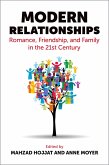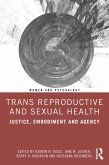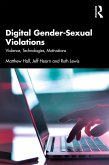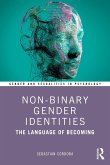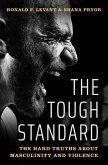In the late 1970s, American sociologist Charles Stember called sexual racism "the emotional barrier to an integrated society." Defining sexual racism as "the sexual rejection of the racial minority," Stember gave name to a social phenomenon epitomized in his time by interracial marriage. Today, our digital dating world has reignited interest in sexual racism through debates over the role of race in partner selection, while studies identify blatant and subtle examples of sexual racism in everyday life and the detrimental effects on the health and wellbeing of individuals and our societies. Bringing together a collection of research, personal reflection, and creative work,
Sexual Racism and Social Justice provides a comprehensive, in-depth account of sexual racism from an international and interdisciplinary perspective. With an array of methods, disciplines, and positionalities, the volume argues that sexual racism is in the very foundations of our societies, determining the ideas, bodies, and systems positioned as desirable. Chapter authors illuminate new understandings of the relationship between sex and race, arguing that to undesire whiteness is to help undo sexual racism. Ultimately, the volume proposes tangible changes to theoretical, conceptual, and practical work to achieve two primary goals of social justice: eliminating racism in our societies and fostering truly liberated sexual plurality.
Dieser Download kann aus rechtlichen Gründen nur mit Rechnungsadresse in A, B, BG, CY, CZ, D, DK, EW, E, FIN, F, GR, HR, H, IRL, I, LT, L, LR, M, NL, PL, P, R, S, SLO, SK ausgeliefert werden.



